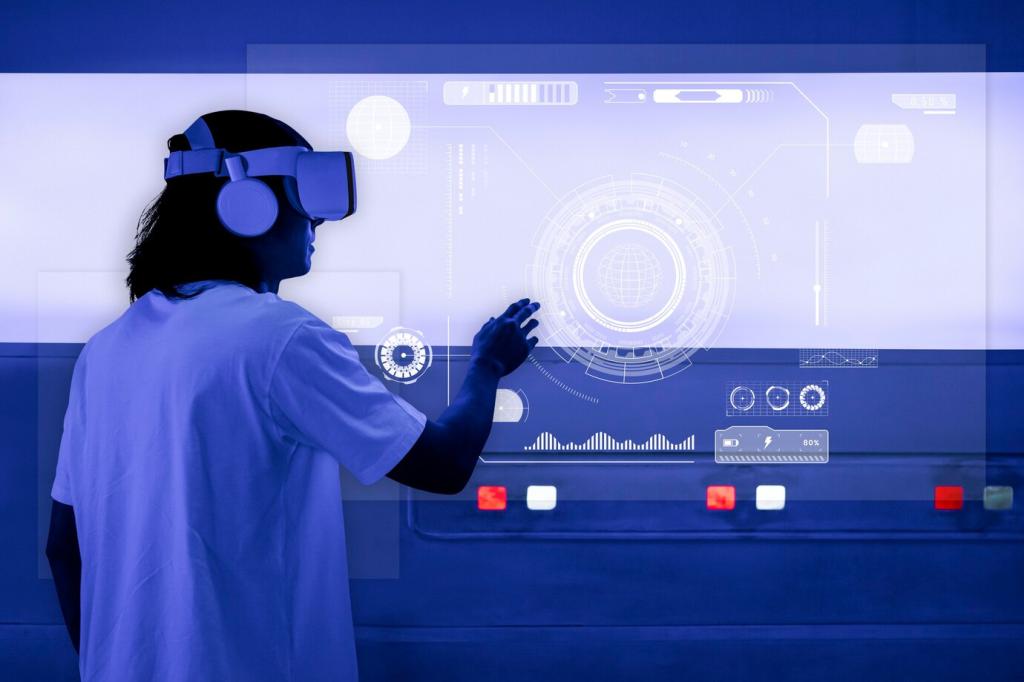
Artificial Intelligence Innovations
Artificial Intelligence (AI) stands at the forefront of technological revolutions impacting every industry worldwide. This page explores the latest and most transformative advancements in AI, showcasing how intelligent systems are reshaping sectors such as healthcare, finance, education, transportation, and more. By delving into recent innovations, we seek to illuminate the profound changes AI is bringing to our daily lives, the challenges it overcomes, and its thrilling potential for the future. From natural language processing and creative algorithms to robotics and ethical considerations, discover how AI is unlocking new possibilities and redefining what is possible in the digital age.
Advancements in Machine Learning
Deep Neural Networks
Deep neural networks are at the heart of many successes in artificial intelligence. Inspired by the structure of the human brain, these networks use multiple layers of interconnected nodes to process information in increasingly abstract ways. The ability of deep neural networks to analyze vast amounts of unstructured data—such as images, text, or audio—has led to breakthroughs in fields like medical diagnostics, language translation, and facial recognition. Expanding their complexity and depth has allowed machines to achieve superhuman performance on numerous tasks, with ongoing research dedicated to improving their efficiency, scalability, and understanding of context.


Transfer Learning
Transfer learning has emerged as a breakthrough in enabling AI systems to apply knowledge gained from one task to new, related challenges. Rather than starting from scratch with each new problem, models trained on vast datasets can be repurposed and fine-tuned for specific applications with much less data and time. For instance, a language model initially trained on web text can be adapted to perform legal document analysis or answer medical queries. This approach not only accelerates the development of tailored AI solutions but also democratizes access to advanced technology by reducing computational resource requirements.
Natural Language Processing Breakthroughs
Large language understanding models, such as those based on transformer architectures, have revolutionized how machines interpret and generate text. By training on massive corpora, these models develop a deep grasp of syntax, semantics, and even cultural nuances. Their capabilities extend beyond basic comprehension, enabling complex tasks like summarization, question-answering, and multilingual translation. As these models grow in scale and sophistication, they are becoming indispensable for automated customer support, research synthesis, and creative writing, raising both possibilities and questions about collaboration between humans and computers.

AI in Healthcare Transformation
Precision diagnostics harness the power of AI to analyze complex medical data and deliver accurate, individualized assessments. Machine learning models trained on vast datasets of medical imaging and patient histories can identify diseases at their earliest stages, often outperforming traditional diagnostic methods. This allows physicians to tailor interventions based on a patient’s unique genetics and health profile, reducing misdiagnosis and optimizing treatment plans. The integration of AI-driven diagnostics into clinical workflows is poised to revolutionize preventative healthcare worldwide.


Intelligent Automation in Industry
Industrial robotics, powered by AI, have transformed manufacturing by automating repetitive, dangerous, or precision tasks. Smart robots use advanced vision, force sensing, and decision-making capabilities to assemble, inspect, and package products with unprecedented accuracy. Flexible automation allows factory lines to quickly adapt to new designs or customer preferences. Human-robot collaboration is also rising, where co-bots work alongside people to boost productivity while ensuring safety. These advances are redefining the global competitiveness of manufacturing industries.

